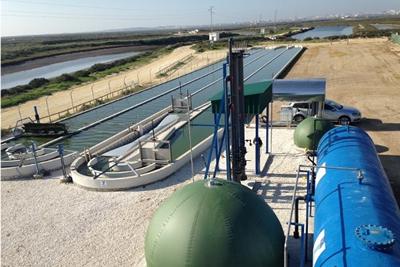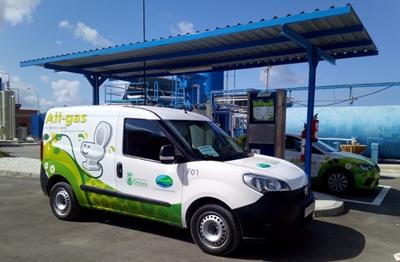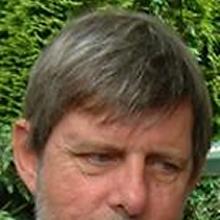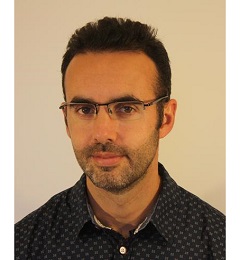Brief description
Our research on integrated biological systems for wastewater treatment and resource recovery was the foundation for construction of one of Europe's first algal biofuel demonstration plants, producing biomethane as vehicle fuel.
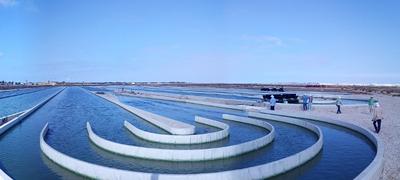
Explore this case study
The challenge
The challenge presented was laid down by the European Commission and required full-scale demonstration of the production of algal biofuel in sufficient quantities to power a fleet of vehicles over 100,000km. The concept of using wastewater as the basis for the growth of micro-algae was already proven, but to do this effectively at high rate and generate a feedstock for biomethane production was both scientifically and technically challenging. To go from initial research to full-scale demonstration at two hectares of cultivation capacity involved close collaboration between industrial partners with differing skills, and integration of this with our research support and guidance as the academic partner in the consortium.
What we do
We began to develop concepts for an integrated algal biofuels platform as part of the UK's Algal Biofuels Challenge, and established pilot-scale facilities in southern Spain. The technology and operational strategies gave a basis for the conceptual design of those used in the FP7 All-Gas project. The system provided the necessary wastewater treatment capacity via an algal/bacterial biomass that eliminated the need for aeration, and provided feedstock for anaerobic digesters. Biogas upgrading and compression to vehicle fuel standards used conventional technology.
Although implementation was carried out by the commercial engineering partners, parallel research was needed to resolve scientific problems associated with salinity, sulphates, nitrogen accumulation, potential oxygen supersaturation and nutrient balances. Raceway hydraulics were also critical, as energy consumption formed part of the carbon balance and had to be minimised. Innovative paddlewheel designs were developed and lab-tested but time constraints precluded their inclusion in the final raceway design.
Our impact
The All-Gas project took an integrated algal wastewater treatment system from laboratory and pilot scale all the way up to a two-hectare demonstration treating wastewater from the city of Chiclana de la Frontera in southern Spain. The biogas produced on site from anaerobic digestion of wastewater biosolids and algal biomass was used to run gas-powered vehicles provided by Volkswagen and SEAT for more than 70,000km.
A full life cycle assessment concluded that the approach turned a wastewater treatment plant from a net consumer of energy to a net producer - in effect, a small-scale sustainable power plant that also protects human health and the environment from wastewater pollution. It is estimated that conventional wastewater treatment already consumes around four percent of global energy demand, and increasing both the number of people served and the standard of treatment means this figure will rise unless new solutions like this can be found. The EC Energy Commissioner attended the end-of-project event for this highly successful project, and Aqualia SA plans to roll this type of system out to other cities across the region and beyond.
The facilities we used and partners we work with
We work closely with academic and industrial partners in areas from the water industry to the renewable energy sector: in the FP7 ALL-GAS project led by Aqualia SA, Southampton was the only university partner.
Our facilities comprise bioreactor laboratories used in the development of novel environmental technologies for water, waste and wastewater treatment and bioenergy production from prototype to commercially viable application, as well as an analytical suite.
Key Publications and media
Papers:
Mendoza, J.L., Granados, M.R., De Godos, I., Acién, F.G., Molina, E., Heaven, S. and Banks, C.J. Title: Oxygen transfer and evolution in microalgal culture in open raceways. Published in Bioresource technology. https://doi.org/10.1016/j.biortech.2013.03.127
De Godos, I., Mendoza, J.L., Acién, F.G., Molina, E., Banks, C.J., Heaven, S. and Rogalla, F. Title: Evaluation of carbon dioxide mass transfer in raceway reactors for microalgae culture using flue gases. Published in Bioresource technology. https://doi.org/10.1016/j.biortech.2013.11.087
Tran, K.C., Martin, J.M., Heaven, S., Banks, C.J., Fernandez, F.A. and Grima, E.M. Title: Cultivation and anaerobic digestion of Scenedesmus spp. grown in a pilot-scale open raceway. Published in Algal Research. https://doi.org/10.1016/j.algal.2014.06.001
Mendoza, J.L., Granados, M.R., De Godos, I., Acién, F.G., Molina, E., Banks, C. and Heaven, S. Title: Fluid-dynamic characterization of real-scale raceway reactors for microalgae production. Published in Biomass and Bioenergy. https://doi.org/10.1016/j.biombioe.2013.03.017
Roberts, K.P., Heaven, S. and Banks, C.J. Title: Comparative testing of energy yields from micro-algal biomass cultures processed via anaerobic digestion. Published in Renewable Energy. https://doi.org/10.1016/j.renene.2015.11.009
Links to external websites
Bioenergy and Organic Resources https://borrg.soton.ac.uk
Environmental Biotechnology Network led by Southampton https://ebnet.ac.uk
Related Staff Member
Related Staff Member
Related Staff Member
Related Staff Member
Related Staff Member
